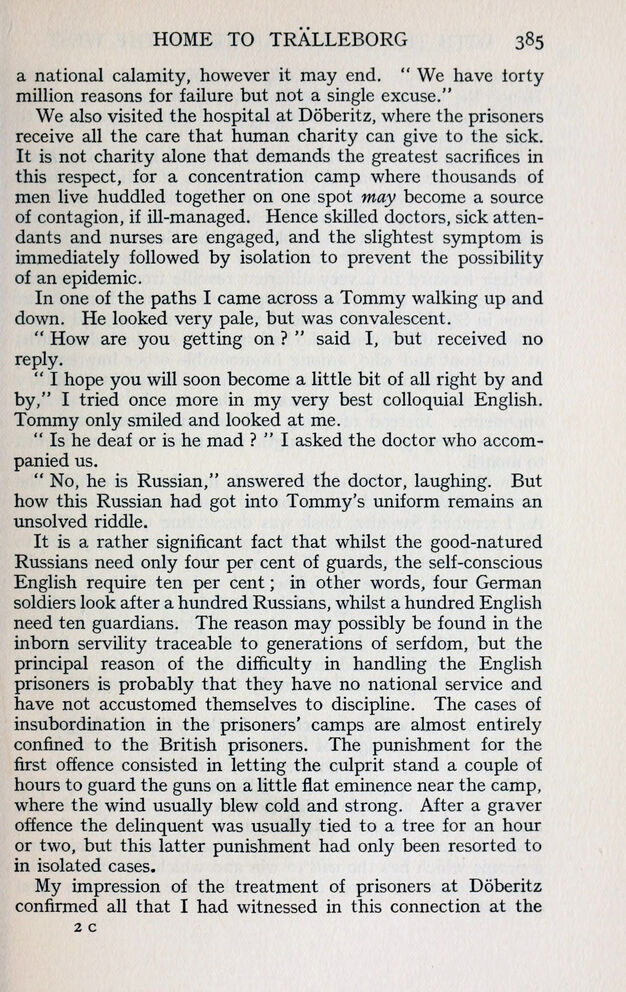
Full resolution (JPEG) - On this page / på denna sida - XXV. Home to Trälleborg

<< prev. page << föreg. sida << >> nästa sida >> next page >>
Below is the raw OCR text
from the above scanned image.
Do you see an error? Proofread the page now!
Här nedan syns maskintolkade texten från faksimilbilden ovan.
Ser du något fel? Korrekturläs sidan nu!
This page has never been proofread. / Denna sida har aldrig korrekturlästs.
HOME TO TRALLEBORG 385
a national calamity, however it may end. " We have torty
million reasons for failure but not a single excuse."
We also visited the hospital at Döberitz, where the prisoners
receive all the care that human charity can give to the sick.
It is not charity alone that demands the greatest sacrifices in
this respect, for a concentration camp where thousands of
men live huddled together on one spot may become a source
of contagion, if ill-managed. Hence skilled doctors, sick atten-
dants and nurses are engaged, and the slightest symptom is
immediately followed by isolation to prevent the possibility
of an epidemic.
In one of the paths I came across a Tommy walking up and
down. He looked very pale, but was convalescent.
" How are you getting on ? " said I, but received no
reply.
" I hope you will soon become a little bit of all right by and
by," I tried once more in my very best colloquial English.
Tommy only smiled and looked at me.
" Is he deaf or is he mad ? " I asked the doctor who accom-
panied us.
" No, he is Russian," answered the doctor, laughing. But
how this Russian had got into Tommy’s uniform remains an
unsolved riddle.
It is a rather significant fact that whilst the good-natured
Russians need only four per cent of guards, the self-conscious
English require ten per cent ; in other words, four German
soldiers look after a hundred Russians, whilst a hundred English
need ten guardians. The reason may possibly be found in the
inborn servility traceable to generations of serfdom, but the
principal reason of the difficulty in handling the English
prisoners is probably that they have no national service and
have not accustomed themselves to discipline. The cases of
insubordination in the prisoners’ camps are almost entirely
confined to the British prisoners. The punishment for the
first offence consisted in letting the culprit stand a couple of
hours to guard the guns on a little flat eminence near the camp,
where the wind usually blew cold and strong. After a graver
offence the delinquent was usually tied to a tree for an hour
or two, but this latter punishment had only been resorted to
in isolated cases.
My impression of the treatment of prisoners at Döberitz
confirmed all that I had witnessed in this connection at the
2 c
<< prev. page << föreg. sida << >> nästa sida >> next page >>